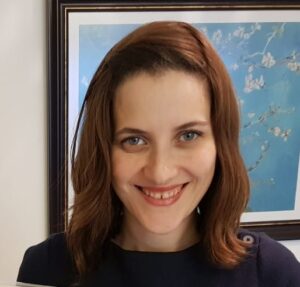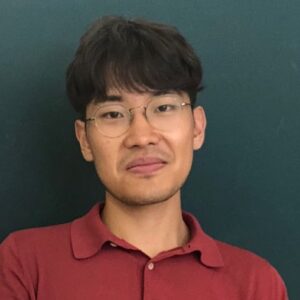 Fibrosis is a pathology of excessive scarring which causes morbidity and mortality worldwide. Fibrosis is a complex process involving thousands of factors, therefore, to better understand fibrosis and develop new therapeutic approaches, it is necessary to simplify and clarify the underlying concepts. In this talk, I will introduce a mathematical model we recently developed for a cell circuit between myofibroblasts and macrophages – the two cell types that produce and remodel the scar. The mathematical framework predicts two types of fibrosis – hot fibrosis with abundant macrophages and myofibroblasts, and cold fibrosis dominated by myofibroblasts alone. Moreover, we use the model to predict that the autocrine signal for myofibroblast division is a potential therapeutic target to reduce fibrosis. Finally, I will discuss how we use myocardial infarction (MI), a widely studied in-vivo injury model for cardiac fibrosis, to test these theoretical concepts and intervention strategies experimentally.
Fibrosis is a pathology of excessive scarring which causes morbidity and mortality worldwide. Fibrosis is a complex process involving thousands of factors, therefore, to better understand fibrosis and develop new therapeutic approaches, it is necessary to simplify and clarify the underlying concepts. In this talk, I will introduce a mathematical model we recently developed for a cell circuit between myofibroblasts and macrophages – the two cell types that produce and remodel the scar. The mathematical framework predicts two types of fibrosis – hot fibrosis with abundant macrophages and myofibroblasts, and cold fibrosis dominated by myofibroblasts alone. Moreover, we use the model to predict that the autocrine signal for myofibroblast division is a potential therapeutic target to reduce fibrosis. Finally, I will discuss how we use myocardial infarction (MI), a widely studied in-vivo injury model for cardiac fibrosis, to test these theoretical concepts and intervention strategies experimentally.
Speaker: Miriam Adler, PhD
Speaker Affiliation: Alexander Silberman Institute of Life Sciences and the Faculty of Medicine, Hebrew University of Jerusalem
Speaker Position: Senior Lecturer
Date: Monday December 18, 2023
Time: 10:00am-11:00am ET **New Time**
Zoom: https://partners.zoom.us/j/82163676866
Meeting ID: 821 6367 6866
Hosted by: Utkarsh Sharma, PhD, Gibson Lab
Research Links: https://adlermiri.wixsite.com/mysite
Google Scholar
Miri Adler completed a BSc in Physics at the Technion and obtained an MSc and a PhD in Physics at the Weizmann Institute with Prof. Uri Alon, studying design principles of biological circuits. In her postdoctoral research working jointly with Prof. Ruslan Medzhitov at Yale University and Prof. Aviv Regev at the Broad Institute of MIT and Harvard, Miri developed theoretical frameworks to uncover universal principles of the collective behavior of cells at the tissue level. Miri received a Fulbright scholarship, EMBO postdoctoral scholarship, Zuckerman STEM leadership program fellowship, and the Israel National Postdoctoral Award Program for Advancing Women in Science. Currently she is an associate research scientist at the Tananbaum Center for Theoretical and Analytical Human Biology at Yale University. As of December, she will be a senior lecturer at the Alexander Silberman Institute of Life Sciences and the Faculty of Medicine at the Hebrew University of Jerusalem.
Click here to be added to our mail list.

 Spatial biology is a new frontier that has become accessible through advances in spatial profiling technologies, such as multiplexed in situ imaging spatial proteomics, which can provide single-cell resolution up to 60 markers. In this talk, I will introduce a computational analysis pipeline that performs integrative analysis of spatial proteomics and single-cell RNA sequencing to identify clinically-relevant cellular interactions. The pipeline features (1) CELESTA, an unsupervised machine learning method for cell type identification in multiplexed spatial proteomics data; (2) a geospatial statistical method to identify cell-cell colocalizations; and (3) an integrative coupling of spatial proteomics and single-cell RNA sequencing data that identified cell-cell crosstalk associated with lymph node metastasis in head and neck cancer which we have validated through mouse model studies.
Spatial biology is a new frontier that has become accessible through advances in spatial profiling technologies, such as multiplexed in situ imaging spatial proteomics, which can provide single-cell resolution up to 60 markers. In this talk, I will introduce a computational analysis pipeline that performs integrative analysis of spatial proteomics and single-cell RNA sequencing to identify clinically-relevant cellular interactions. The pipeline features (1) CELESTA, an unsupervised machine learning method for cell type identification in multiplexed spatial proteomics data; (2) a geospatial statistical method to identify cell-cell colocalizations; and (3) an integrative coupling of spatial proteomics and single-cell RNA sequencing data that identified cell-cell crosstalk associated with lymph node metastasis in head and neck cancer which we have validated through mouse model studies. The graph neural network (GNN) and transformer model are two renowned neural network architectures for obtaining contextual embeddings from biomedical data. However, each model has a trade-off in terms of the required dataset for training and representation power of the model. As examples, I will discuss the TEA-graph which employs GNN to define the contextual pathological features related to cancer patients’ survival, and GRIP, which utilizes a combination of GNN and transformer to define the set of immune receptors linked to patients’ survival.
The graph neural network (GNN) and transformer model are two renowned neural network architectures for obtaining contextual embeddings from biomedical data. However, each model has a trade-off in terms of the required dataset for training and representation power of the model. As examples, I will discuss the TEA-graph which employs GNN to define the contextual pathological features related to cancer patients’ survival, and GRIP, which utilizes a combination of GNN and transformer to define the set of immune receptors linked to patients’ survival.